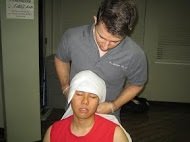
For post-operative patients, one of the most fundamental aspects is to offer proper first aid care to ensure that they recover well. Postoperative care, by definition, starts at the hospital and carries on all through the period of recovery, which may still be within the hospital setup or at home. The First aid care for such persons, especially for those at home, is key if the patient is to make quick recovery. In this journey, there are key aspects that must be well taken care of, and they include the following:
– Clearance of the airways as the first aid procedure.
– Management of pain with medication and in some cases, physical therapy (depending on the condition).
– Assessment of the patient’s mental status
– Healing of the surgical wound resulting thereof.
There are also a number of factors that post-operative patients must take care of, and they include:
– Prevention of urine retention.
– Constipation that results either from diet or from medication that the patient is getting.
– Thrombosis, especially within deep veins.
– The variation of blood pressure especially because many surgical procedures are invasive, and hence require to deal with volumes of blood.
– It is important to note that in patients with diabetes, the levels of blood glucose must be monitored closely. This is achieved by the use of the finger stick testing method that is carried out after every couple of hours, particularly when the patients are wide awake. The reason for this is that it ensures improved control of the glycemic index.
The section below will look at these factors in greater detail to help ensure that post-operative patients recover well.
Clearing the airways
Many patients will often undergo extubation after a surgical procedure so that it becomes easy for them to get rid of secretions within the air pathways. Due to the nature of this condition, it becomes very important to make sure that such a patient does not exit the recovery room until they are able to breathe well on their own.
Pain management
This is an integral part of recovery for post-operative patients, and is essential as soon as the patient regains consciousness. Opioids are prescribed as the first line of defence for the simple reason that they can be administered through two key methods, both oral and parenteral. In severe surgical procedures, the patients are given medication through IV.
Mental status of post-operative patients
Many patients, following a surgical procedure will often show confusion, albeit for a brief period of time. This can be attributed to the fact that the patients are given anesthesia to assist them during the procedure. Elderly patients are particularly at risk because they are more pre-disposed to dementia.
Care of the wound in post-operative patients
while each wound must receive personalized care, it becomes very important that sterility is observed, and that dressing provided be left in place for at least 24 hours, unless the condition worsens and introduces the possibility of infection.
[youtube url=”https://www.youtube.com/watch?v=XZq1gExGh8k” width=”220″]Putting these factors in mind makes it easy for the patient to receive proper care following surgery.
